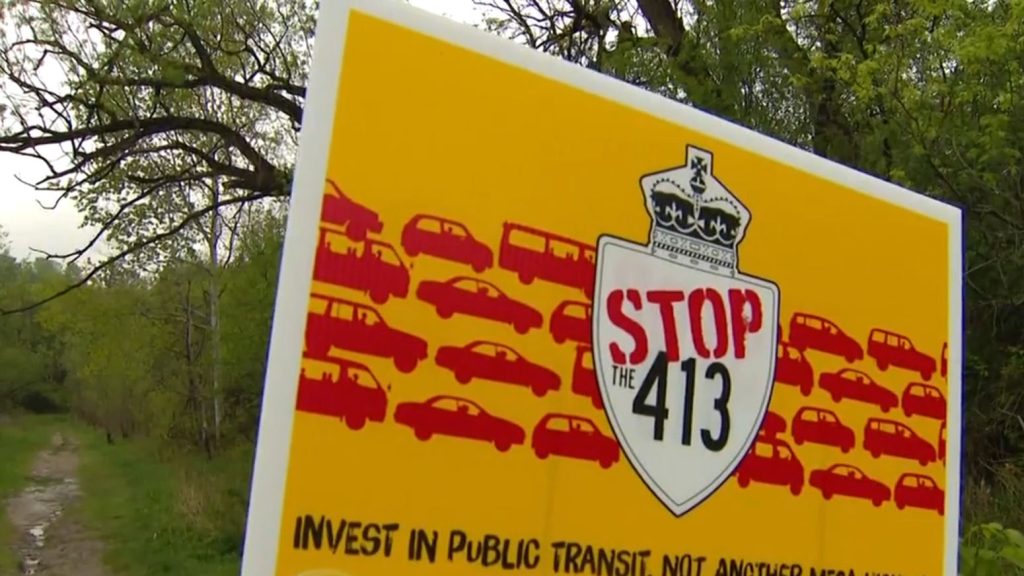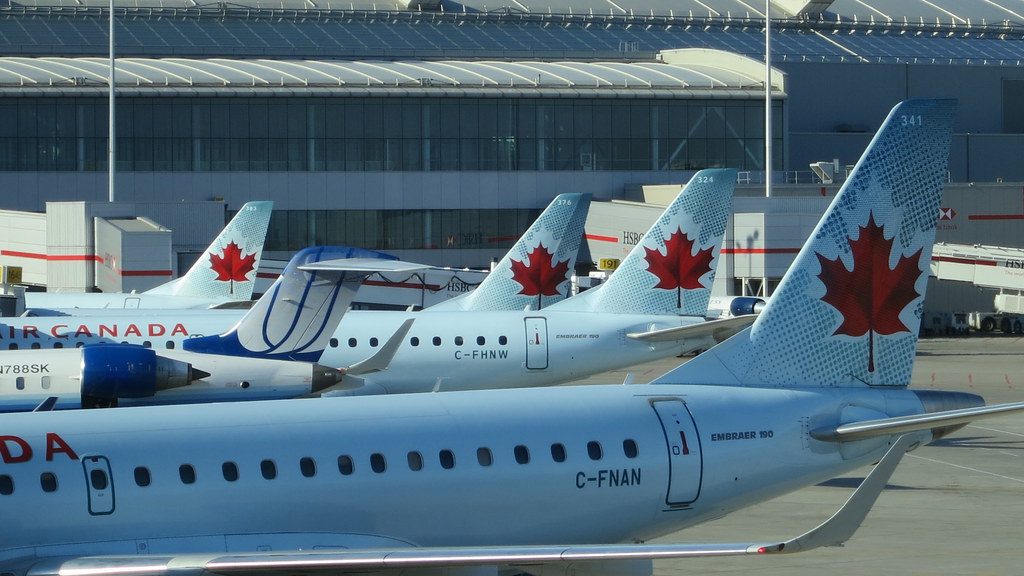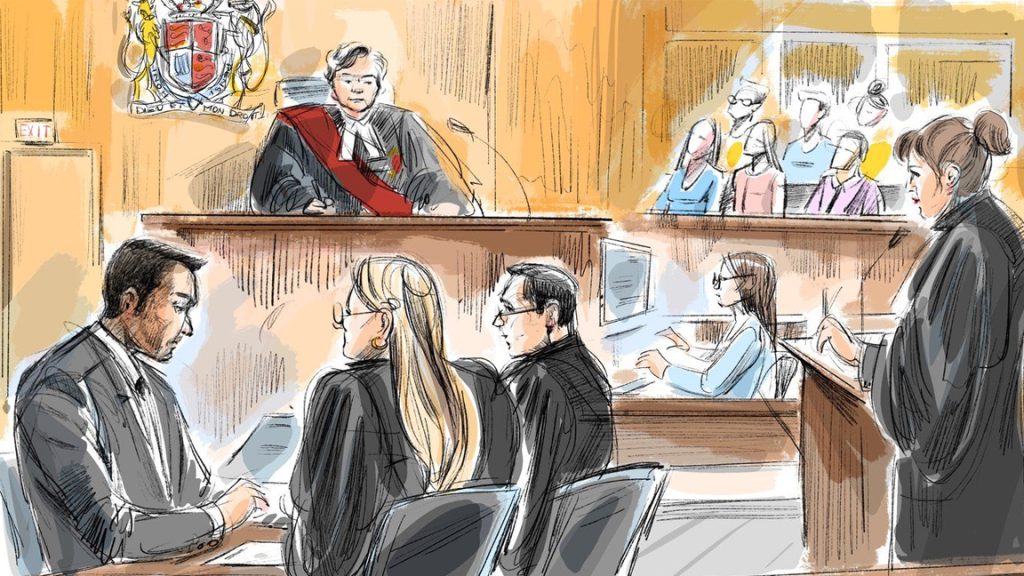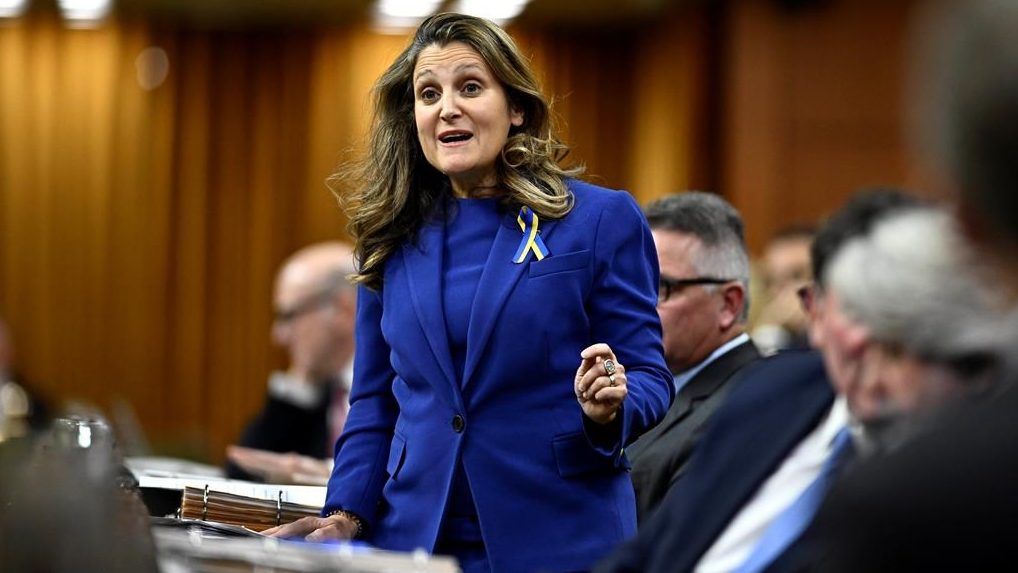World War II Veteran: “Wars Don’t End Wars”
Posted November 11, 2010 10:09 am.
Last Updated July 31, 2015 5:20 pm.
This article is more than 5 years old.
Story and photo by Michael Talbot, CityNews.ca
Dr. Eldon Comfort’s eyes well up with tears when he grips the Canadian flag before hesitantly releasing it and staring solemnly skyward as it’s slowly raised behind an orchestra of bagpipes.
If the eyes truly are the windows to the soul, then it’s clear that Comfort, a World War II veteran, has seen too much death and destruction in his time.
But his face lights up with hope when he talks about forging a world without war — a vision that has fueled him since he took off his uniform so many years ago.
After enlisting at the age of 18, Comfort, who was born in 1912, became a Lieutenant in the 2nd Divisional Army. He oversaw a communications unit responsible for directing gun-fire on the front lines.
His time dedicated towards defeating Hitler’s army may have left a haunting impression, but it also led Comfort along his path towards becoming an honoured peace activist.
As he told CityNews.ca, he entered the war as a naïve teen, convinced that all Germans were ‘evil,’ but by the time he left, he was a changed man.
“I think by nature I was not a violent person,” he explained. “But there were two scenes in Europe that really made me a pacifist, I think.
“One was the Canadian cemeteries, the one at Dieppe is huge, there’s thousands of people there, young men. I couldn’t help but think as I watched those graves, how much sacrifice those guys made. And the other scene that I think turned me against violence as a solution to conflict was after VE Day, myself and my men were posted to help restore order. There was no more fighting, the Germans were all disarmed, but there were several hundred (German) prisoners behind wire, barbed wire, and they were a bedraggled, dispirited, hungry bunch of probably reluctant soldiers as I had been.
“And I couldn’t help but think, ‘Are these my enemies?’ Those guys had not put Canada in any danger, their bosses had. They were obeying orders, as I was. I thought it was a good idea at the time, but there’s got to be a better way than that. So after I took off my uniform I did spend a lot of time, as much as possible, working for peaceful solutions to conflict.”
Over the years he’s marched, attended sit-ins, and written extensively about his views and experiences.
His spirited efforts were acknowledged in 2001, when the University of Victoria named him an Honourary Doctor of Sacred Letters.
He’s also one of 35 WWII veterans, and others involved in the war effort, profiled in a new book, Honour, written by Sharon Henderson, with photos by Yuri Dojc.
Comfort was on hand for the book’s launch and a Commemorative flag raising at the Richard Speck retirement residence in Mississauga.
Comfort’s strong opinions translate to today’s military conflicts. He insists that Canada made a mistake going into Afghanistan.
“Wars are not glorious, wars are ugly and the weapons are made to kill and they do just that,” he adds, clutching a cane. “Glorification of war is something I regret when I see it. We should honour the dead, of course, and respect what they have done, but war as such is not glorious and that includes our war in Afghanistan as well.”
“We shouldn’t have been there in the first place,” he staunchly insists. “I don’t think Canada should be meddling in the affairs of countries around the world, no matter how high the objectives may be perceived by some.”
“I don’t understand why we are there at all except to appease the Americans who were disappointed because we didn’t help them out in Iraq,” he adds. “It seems to be a war like Vietnam, a war we can’t win. The objectives aren’t clear so how do you know when you have won? We will leave Afghanistan in a wrecked condition, the way Iraq is, the way southern Vietnam was, so what have we accomplished? I don’t know. The big thing about helping the status of women, building some schools…that’s a pittance compared to the damage that was done.”
He also realizes that the nature of battle has changed immensely. In World War II it was clear who the enemy was, the battle lines were drawn, and rules of engagement were for the most part adhered to.
“We’ve come a long ways from the day when a King led his army into war and only soldiers and combatants were killed. Today with weapons of mass destruction the killing is indiscriminate, there are undoubtedly more civilians, including women and children, that are killed, than soldiers in uniform.
“And certainly the men who made the decision to go to war are a long way from the battlefront, they are very safe.”
Comfort doesn’t refute that once in power Hitler had to be stopped, but he does believe there were other options leading up to his remarkable ascent, that could have prevented such devastating bloodshed.
“A lot of circumstances need to be satisfied in order to say that a war is justified. When I enlisted in WWII, I thought that was the thing to do…I wasn’t in any doubt what I must do, but when you study history you realize that WWII could have been prevented really.”


















